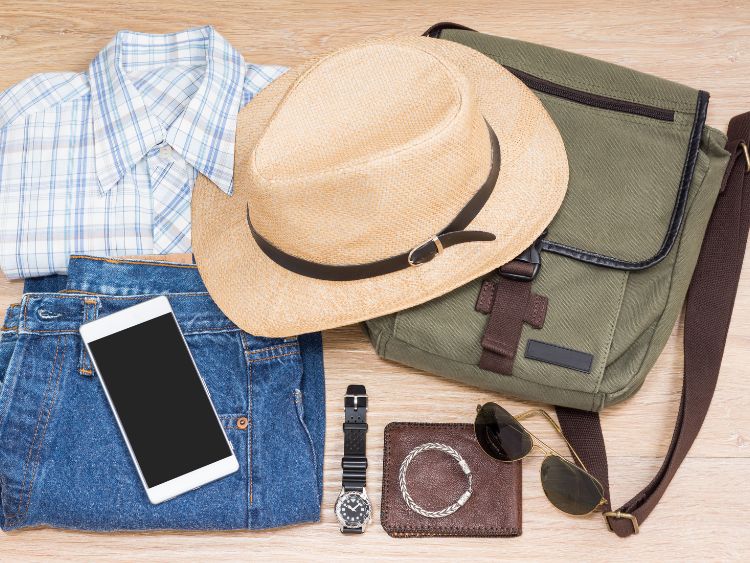Paris Fashion Week—just the name evokes a sense of luxury, glamour, and style. Held twice a year, this prestigious event is the pinnacle of the fashion calendar, where designers showcase their collections for the world to admire. If you’ve ever wondered what makes Paris Fashion Week so special, you’re in the right place! Let’s take a deep dive into the history, significance, and trends that emerge from this iconic event.
What Is Paris Fashion Week?
Paris Fashion Week (PFW) is a biannual event where the world’s top designers debut their collections for the upcoming season. It happens twice a year: once in February/March for the autumn/winter collections and again in September/October for the spring/summer collections. PFW is part of the “Big Four” fashion weeks, which include New York, London, and Milan. However, many consider Paris the crown jewel of the fashion world.
The event spans about nine days and is packed with runway shows, presentations, and glamorous parties. Top designers like Chanel, Louis Vuitton, Dior, and Balmain unveil their latest designs, influencing fashion trends for the coming seasons.
The History of Paris Fashion Week
Paris has always been the epicenter of fashion. From the 17th century, when Louis XIV turned fashion into a powerful tool of influence, to the 20th century, where designers like Coco Chanel and Christian Dior redefined style, Paris has set the tone for global fashion trends.
Paris Fashion Week, as we know it today, officially began in 1973 under the aegis of the French Federation of Fashion and Ready-to-Wear. The first event was held at the Palace of Versailles, and it became a trendsetter from the get-go. Back then, it was mostly about haute couture—extravagant, custom-made designs that defined luxury. Today, the event has evolved to include ready-to-wear collections, making fashion accessible to a broader audience.
Why Is Paris Fashion Week Important?
Paris Fashion Week isn’t just an event; it’s a movement. Here’s why it matters so much:
- Global Influence: Designers present their collections here, but the ripple effect is felt worldwide. Trends seen on Paris runways soon filter down to high-street fashion brands.
- Cultural Significance: Paris Fashion Week sets the tone for how society dresses, influencing not just fashion but art, culture, and even politics.
- Innovation Hub: This is where fashion meets art. Designers experiment with new materials, technology, and ideas, pushing the boundaries of what’s possible in fashion.
- Networking Opportunities: For designers, models, and industry insiders, PFW is a prime networking opportunity. Deals are made, collaborations are formed, and careers are launched.
What Happens at Paris Fashion Week?
While the event may look glamorous from the outside, it’s a whirlwind of activity for those involved. Here’s a breakdown of how a typical Paris Fashion Week unfolds:
- Runway Shows: The heart of the event, runway shows give designers the chance to showcase their latest collections. Each show lasts about 15-20 minutes, but the preparation takes months.
- Street Style: Off the runway, the streets of Paris become a runway in themselves. Fashion enthusiasts, influencers, and editors dress in their boldest outfits, creating trends with every step.
- Parties and Events: Fashion Week is just as much about the social scene. Exclusive after-parties and events offer designers, celebrities, and influencers a chance to network and celebrate.
- Fashion Trade Shows: These are essential for buyers and retailers to view collections up close and make purchasing decisions for their stores.
Memorable Moments in Paris Fashion Week History
It wouldn’t be Paris Fashion Week without a few jaw-dropping moments. Here are some that made headlines:
- Alexander McQueen’s ‘Voss’ Show (2001): Known for pushing boundaries, McQueen’s show featured models in a mirrored cube, reflecting society’s obsession with self-image.
- Dior’s 60th Anniversary Show (2007): John Galliano paid homage to Christian Dior with a decadent celebration of the brand’s history.
- Chanel’s Supermarket Show (2014): Karl Lagerfeld transformed the Grand Palais into a supermarket, with models walking down aisles stocked with Chanel-branded groceries.
Emerging Trends from Paris Fashion Week
Each year, Paris Fashion Week sets the tone for upcoming trends. Here are a few to keep an eye on:
- Gender Fluidity: Many designers are embracing gender-neutral fashion, with androgynous models and unisex designs gracing the runway.
- Sustainability: The fashion industry is increasingly moving toward eco-friendly materials and ethical practices. Paris Fashion Week has seen a rise in designers promoting sustainable collections.
- Digital Fashion: The future of fashion is digital. With the rise of virtual shows, Paris Fashion Week is slowly incorporating digital elements into its presentations, offering a glimpse into what might be the future of runway shows.
How Can You Attend Paris Fashion Week?
Attending Paris Fashion Week is no small feat, but it’s not impossible! While most shows are invite-only, you can still find ways to be part of the excitement.
- Get a Fashion Industry Job: Many attendees are buyers, editors, influencers, and stylists. Getting a job in fashion could be your golden ticket.
- Be an Influencer: If you’ve got a following on social media, brands might invite you to attend shows.
- Street Style: Even if you don’t have a ticket to a show, hanging out near the venue can be exciting. The street style outside the shows is a spectacle in itself!
FAQs About Paris Fashion Week
Q: What is the best time to attend Paris Fashion Week?
A: Paris Fashion Week takes place twice a year: in February/March for autumn/winter collections and September/October for spring/summer. Choose your dates based on the collections you’re most interested in.
Q: Can anyone attend Paris Fashion Week?
A: While most shows are invite-only, some designers offer tickets to the public. You can also attend public fashion events and trade shows held during the week.
Q: How can I get an invite to Paris Fashion Week?
A: Invitations are typically sent to industry professionals, celebrities, and influencers. If you’re in the fashion business, networking is key.
Q: What is the difference between haute couture and ready-to-wear?
A: Haute couture refers to custom-made, one-of-a-kind pieces, often hand-sewn and extremely expensive. Ready-to-wear collections are mass-produced and available to a wider audience.
Q: Is Paris Fashion Week the most important fashion week?
A: While it’s subjective, many consider Paris Fashion Week the most prestigious due to its rich history, iconic designers, and global influence.
Conclusion
Paris Fashion Week is more than just a series of runway shows. It’s a cultural event that shapes the future of fashion globally. Whether you’re a fashion enthusiast or just curious about trends, PFW offers a glimpse into the world of high fashion. From iconic designers to bold street style, Paris is where fashion dreams come alive. And who knows? Maybe one day, you’ll find yourself sitting in the front row, soaking in the glamour and excitement that only Paris Fashion Week can offer.
Authoritative Links:
- https://www.parisfashionweek.fr
- https://www.vogue.com/tag/event/paris-fashion-week
- https://www.businessoffashion.com/articles/fashion-week/paris



